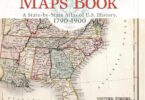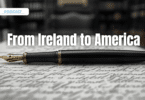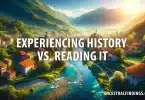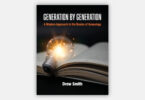Whether you are just starting out in genealogy or are a pro, there are some reference books you always want in your genealogy library. These are books that can give you inspiration when you get to brick walls in your research, tell you about archaic historical words you may come across, and show you the best way to format your family history writing for publication. If you are just building your genealogy library, these are the four genealogy books you must have in it.
1. Forensic Genealogy, by Colleen Fitzpatrick, Ph.D.
If you really want to dig deep into your genealogy research and discover new things in documents and photos you’ve seen a million times, this is the book for you. You will learn about examining clues in a photo to determine not only where and when it was taken, but the actual precise date and even time of day and season using things like shadows and the position of the sun in the sky. There is a lot about DNA in this book, as well, including what genealogical mysteries it can and can’t solve, and where to find it in unusual places for ancestors who may be long gone. You will uncover tons of interesting new information about your family history with this as a reference book in your library.
2. Black’s Law Dictionary
This may seem like a strange book to have in your genealogical library, but it really is helpful. It is full of just about every legal term used in the English language since medieval times. You will probably be looking at old wills, probate records, guardian documents, property records, and more. The older these documents are, the more likely they are to have archaic terms in them. However, even newer legal documents can have unfamiliar terms in them. Black’s Law Dictionary will ensure you are always able to accurately translate what a genealogical document is telling you.
3. Genealogical Writing in the 21st Century, by Henry Bainbridge Hoff
If you are writing a family history that you intend to get published one day, this book shows you the proper format for doing it. There are a couple of generally accepted formats used in modern genealogical writing. Your book will have a better chance of being published if you use the proper format. This is a handy reference book to keep you on track and make sure you’re writing things down in the right order, the right places, and referencing things the right way.
4. Professional Genealogy, by Elizabeth Shown Mills
Whether or not you are planning on doing genealogy as a business, this book is a terrific resource for letting you know if you’re researching things thoroughly enough. You’ve got to go through every possible source and look at it in a number of different ways to be sure you have the most accurate genealogical information. When you’re a professional genealogist, accuracy is key to getting and keeping clients. This book will allow you to make sure your work is just as good as that of a professional.






